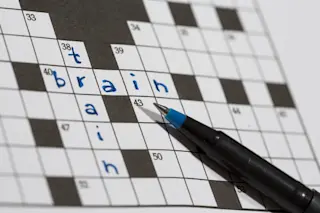Scientists studying the effects of brain games have announced two milestones in their efforts to bring legitimacy to the field: a massive study seeking 30,000 volunteers, and the first-ever FDA approval of a computerized game to treat ADHD.
Funded by the National Institute of Mental Health, the large study is designed to discern who benefits most — or least — from online games designed to challenge and enhance high-level cognitive abilities.
“We and others have published papers suggesting that brain training works better for some people than for others,” says Susanne Jaeggi, associate professor and director of the Working Memory and Plasticity Lab at the University of California, Irvine. “But we don’t know the characteristics of those people it works best for. By training 30,000 people, we hope to find out.”
Enrollment in the study, which is free, requires participants to first spend about 15 minutes completing a survey, and ...














